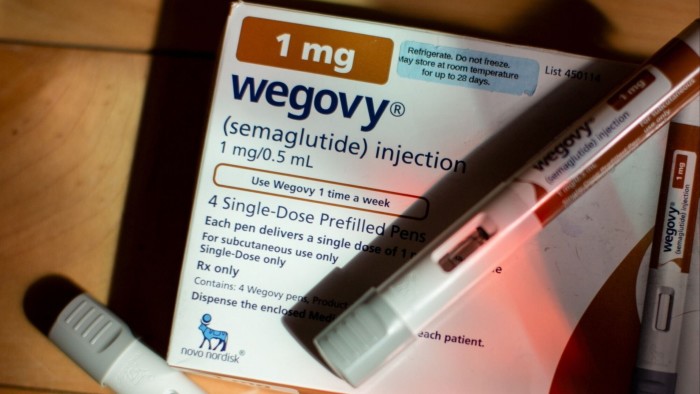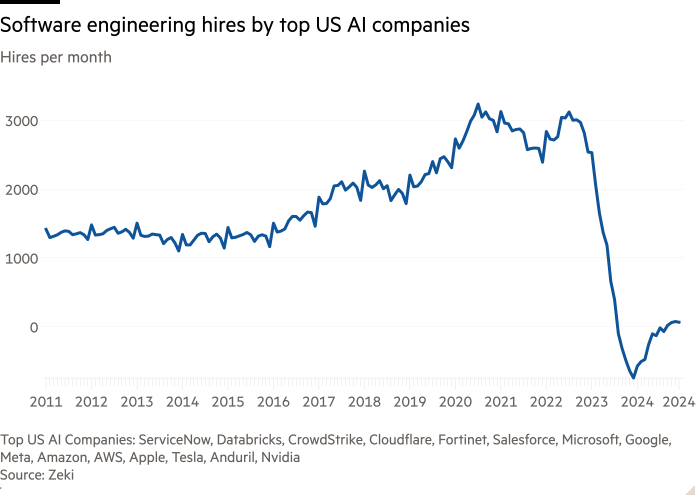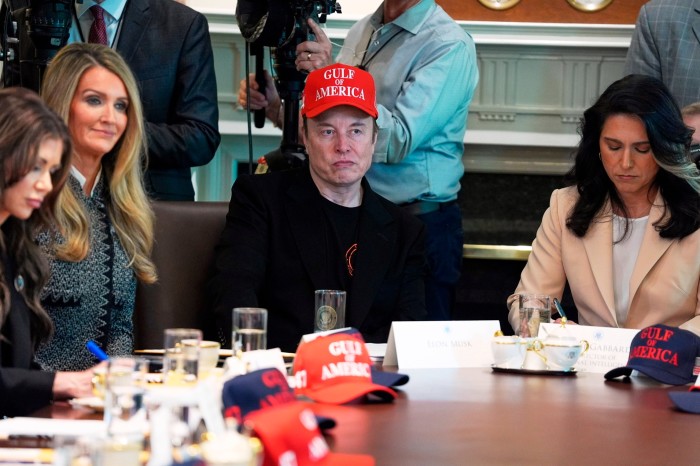Novo Nordisk cuts forecasts after replica obesity drugs hit US take-up

Unlock the Editor’s Digest for free
Roula Khalaf, Editor of the FT, selects her favourite stories in this weekly newsletter.
Danish pharmaceutical group Novo Nordisk has cut sales and profit forecasts after replica drugs hit take-up of its blockbuster GLP-1 obesity and diabetes medicines Wegovy and Ozempic in the US.
The company beat operating profit forecasts for the first quarter of the year but said it had been hit by compounding — preparations custom-made by pharmacies using the active ingredients of patented drugs.
“In the first quarter of 2025, we delivered 18 per cent sales growth and continued to expand the reach of our innovative GLP-1 treatments,” said Lars Fruergaard Jørgensen, president and chief executive. “However, we have reduced our full-year outlook due to lower-than-planned branded GLP-1 penetration, which is impacted by the rapid expansion of compounding in the US.”
Novo also said its US operations would no longer have to meet the company’s global gender goals, as the administration applies pressure to remove diversity initiatives.
Sales growth for this year is now expected to be 13 to 21 per cent at constant exchange rates, compared with earlier guidance of 16 to 24 per cent. Operating profit growth is forecast at 16 to 24 per cent, compared with a previous range of 19 to 27 per cent.
Sales rose 18 per cent year-on-year to DKr78.1bn ($11.9bn) at constant exchange rates in the first quarter. Operating profits climbed 20 per cent to DKr38.8bn, beating consensus analyst forecasts.
Novo shares rose more than 5 per cent in morning trading.
Compounding began in the US after the Food and Drug Administration regulator declared official shortages in 2022 of Wegovy, Ozempic and Zepbound, which is made by Novo’s rival Eli Lilly. Patients have been able to buy compounded products for as little as $199 a month. List prices for the branded drugs, charged to people without insurance, are $1,000 or more.
The FDA has now said the shortage is over, meaning pharmacies must stop selling compounded versions of the Novo drugs by May 22.
Novo said it expects “a step up in the business that used to go to compounders” in the second half of the year, according to chief financial officer Karsten Munk Knudsen. Another potential boost for Wegovy includes deals to sell it at discounted rates at the drugstore chain CVS and via telehealth companies. Novo also plans to speed up its international expansion of Wegovy outside the US, Knudsen said.
“We’ve launched in around 25 markets currently and we see an accelerated launch schedule following increased supplies,” he said.
In a statement alongside its results, the drugmaker said: “While Novo Nordisk maintains our global aspiration of a minimum 45 per cent representation for each gender by the end of 2025, Novo Nordisk’s operations in the US will no longer participate in this global initiative due to evolving legal requirements,” the company said.
Novo was showing “encouraging” signs of “fighting back” in the face of investor worries that it was losing ground to Lilly, said Emily Field, an analyst at Barclays.
“The results and the guidance cut are for the most part in the realm of what people had been expecting,” Field said. “What people really want to hear from them is how confident they are that volumes are going to increase in the second half — because it’s a volume play.”
Novo has also faced investor scrutiny about its planned successor obesity and diabetes drugs, after two sets of worse than expected trial results for its product CagriSema.








